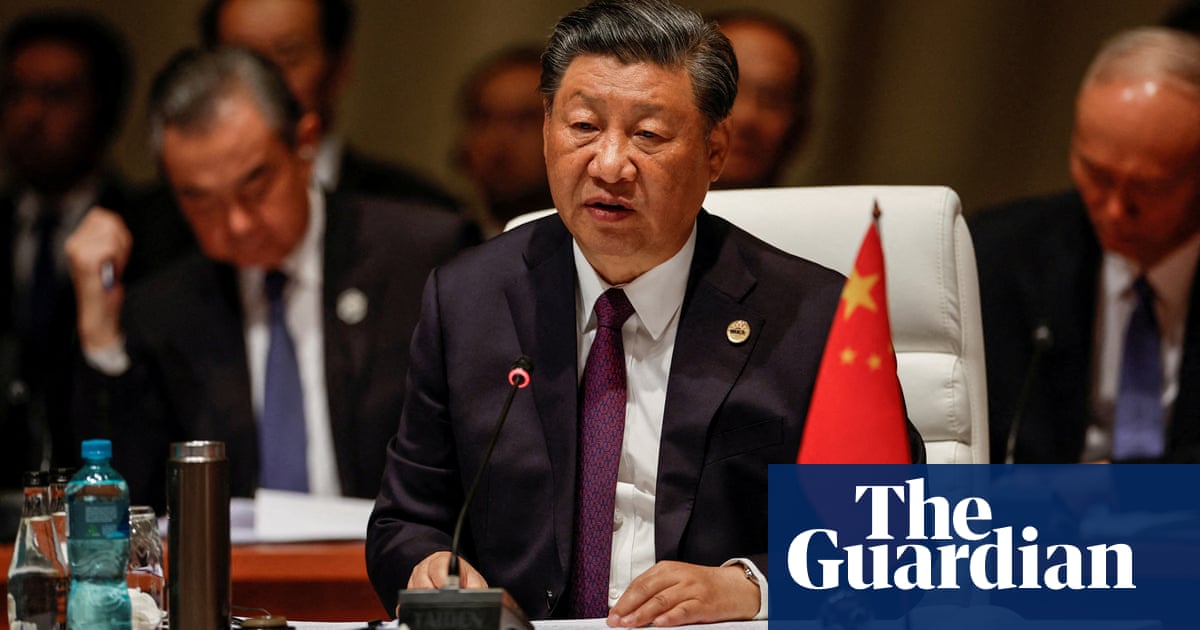
The president of China, Xi Jinping, expressed a willingness to collaborate with the United States in addressing global issues and managing their disagreements. This has sparked optimism for a potential meeting between Xi and US President Joe Biden later this year.
According to state media, Xi stated in a letter presented at the National Committee on US-China Relations’ annual dinner in New York that the key to global success lies in the US and China’s ability to find a mutually beneficial way of interacting.
Xi’s call for more stable bilateral ties, which he says should be built on the principles of “mutual respect, peaceful co-existence and win-win cooperation”, comes as the foreign minister, Wang Yi, prepares to visit Washington this week.
The trip, scheduled to take place from Thursday to Saturday, will be the highest-level in-person engagement between the countries before an expected meeting between Biden and Xi in San Francisco at the Asia-Pacific Economic Cooperation summit next month.
According to a commentary from China’s state-run Global Times, Chinese analysts believe that Wang’s visit will facilitate a potential meeting between the leaders of both countries. However, they also stated that the US must take tangible steps to address Beijing’s concerns and demonstrate its sincerity.
In a possible indication of improving relations, Chinese officials gave a warm welcome to the governor of California, Gavin Newsom, on Wednesday. Newsom is currently visiting China for one week in order to advocate for greater collaboration on climate change. During his trip, he met with Wang, who expressed that Newsom’s visit has established a strong basis, instilled hope, and created opportunities for the future. He also met with the vice-president, Han Zheng, who referred to him as a long-time friend.
Han stated that the relationship between China and the United States is crucial and plays a significant role in the global landscape. He emphasized the importance of subnational collaboration in promoting the healthy and stable growth of this relationship. Han expressed confidence that your week-long trip will bring positive momentum to the development of the China-US relationship.
In recent times, there has been an increase in tension between the countries. Efforts to mend relations were ruined by a dispute over spying in January, where the US government destroyed a balloon that was suspected to be Chinese spy equipment in US territory. The secretary of state, Antony Blinken, cancelled a planned trip to China as a response, but did meet with Chinese officials during the summer.
The main focus of Washington has been to prevent the fierce rivalry between the world’s two largest economies and their conflicts on various matters, such as trade, Taiwan, and the South China Sea, from escalating into a physical confrontation.
According to Chinese state media, Wang plans to address the issues of Gaza and Ukraine, as well as the escalating tensions with the Philippines regarding the South China Sea.
On Tuesday, Blinken informed the UN security council that he plans to collaborate with Wang in order to contain the escalation of the Israel-Hamas conflict during their upcoming meeting on Friday. American authorities are hoping for China’s assistance in leveraging its sway over Iran and other nations in the Middle East to curb the expansion of the conflict.
Experts noted that although China has raised concerns about the United States’ handling of the situation, both countries have a mutual interest in preventing a larger war in the region.
after newsletter promotion
Dalia Dassa Kaye, a senior member at the UCLA Burkle Center for International Relations, expressed that there could potentially be shared interests between the two countries, despite China’s potential advantage in the region due to the impact on US relations with Arab allies.
Although, she stated that Beijing may have limited influence, some raised doubts about its willingness to utilize such power.
According to Jon Alterman, leader of the Middle East department at the Center for Strategic and International Studies in Washington, China’s significant consumption of oil motivates them to avoid a direct conflict between the US and Iran, as it would lead to higher oil prices.
“However, the Chinese are not expected to take on a significant role in this situation,” he commented. “I anticipate that they will desire a place at the negotiating table once the Israel-Gaza conflict is resolved, but they do not feel a strong urgency or capacity to expedite the resolution.”
The actions of Israel in bombing and blockading Gaza as a reaction to attacks from Hamas have caused frustration in countries with predominantly Muslim populations. The United States is concerned that a potential ground attack could escalate into a larger conflict.
The Chinese government has continuously urged for calm and a cessation of hostilities in light of Israel’s attacks on Gaza, and has intensified its condemnation of Israel’s actions.
Source: theguardian.com
















